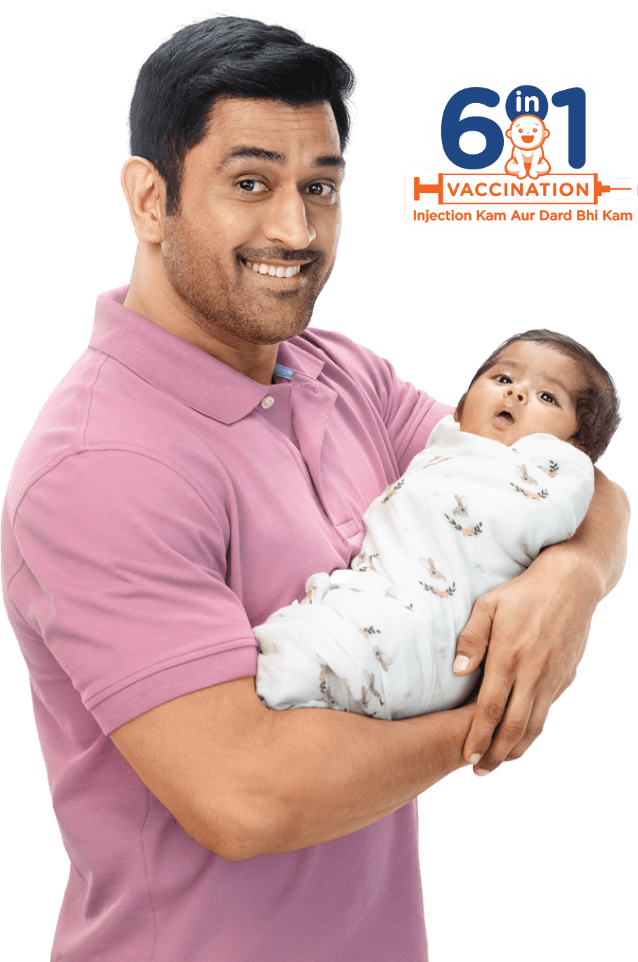What is Polio and how can my baby catch it?
Polio is a highly infectious disease caused by a virus. It infects the nervous system, and can cause paralysis, difficulty breathing and sometimes even death. Polio mainly affects children under 5 years of age and is highly contagious. It spreads from person-to-person mainly through feco-oral route or by a common vehicle (for example, contaminated water or food). Also, if your child puts objects like toys that have been contaminated into their mouth, they can get infected.
What would happen if my baby got Polio?
As per CDC, about 1 out of 4 people with Poliovirus infection will have flu like symptoms which may include sore throat, fever, tiredness, nausea, headache and stomach pain. A proportion of patients can develop symptoms involving brain and spinal cord. Paralysis is the most severe symptom associated with polio. It can lead to permanent disability and death.
What are the ways to protect my newborn from Polio?
The most effective way to prevent polio is vaccination. Other measures include good sanitation and proper hygiene. Talk to your doctor about more information on vaccination against Polio.














